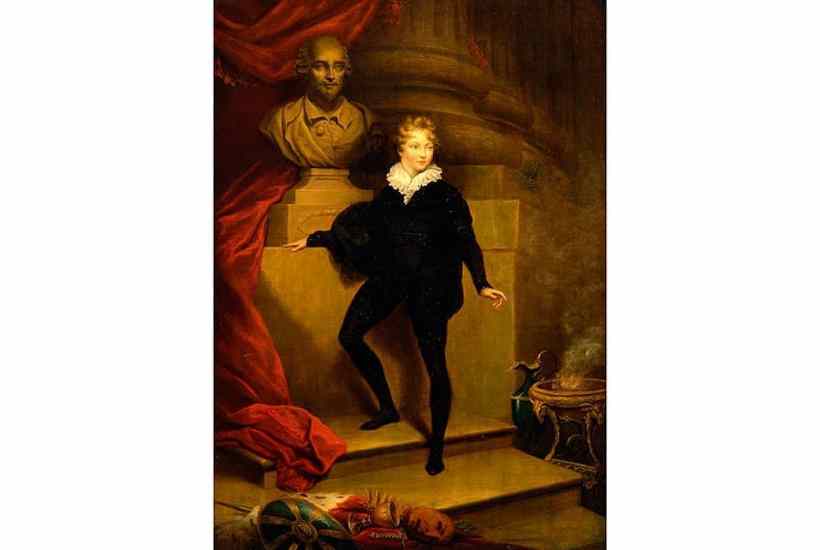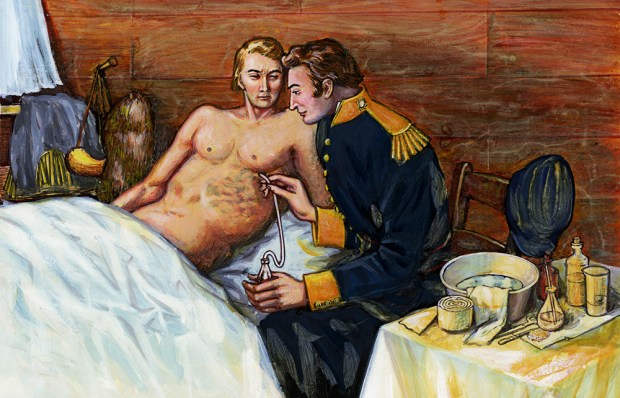During his brief stage career Master Betty, or the Young Roscius, was no stranger to superlatives: genius, unparalleled, superior, Albion’s glory, a Child of Nature, the Wonder of the Age. He was a child prodigy who, in the early 19th century, took British theatre by storm. Aged just 11 William Betty made his debut and was hailed as a second David Garrick. Bettymania ensued: theatres fought for his services and the House of Commons adjourned early to see him tread the boards.
But it didn’t last. After two years Betty’s star had faded. In Michael Arditti’s latest novel, The Young Pretender, we follow Betty, now aged 20, as he attempts to stage a comeback. It is soon clear that this may be a mistake. ‘I have no wish to see you hurt again,’ cautions his mother. William doesn’t remember being hurt the first time. In fact, he remembers very little, except the praise. ‘What a handsome boy!’ his ever-present tutor, Mr Hough, exclaims.
Little by little, it all begins to come back. He meets old acquaintances, such as the actor William Macready and the painter James Northcote. Arditti adroitly keeps Betty in the dark while the reader begins to suspect the truth. The tone is knowing, slightly tongue-in-cheek but sympathetic. The memoir framing allows for Betty to trip himself up; he is prone to rosy reminiscences and wilful misinterpretations.
Perhaps fittingly, events are often rather stagey. Three key scenes come about entirely by chance: a walk past Moorfields sparks the memory of a traumatic tour of Bedlam mental hospital; a sudden desire for company prompts an educational visit to a prostitute (‘You don’t ever want to be a pretty child, sir’). The novel’s climax is reached in the home of a creepy aristocrat who owns, among other curios, a Betty-themed snuff box: ‘I keep you next to my heart and then, with one pinch, I breathe you into my very soul.’
This is all good fun, but it is a shame the mode is so often melodrama or farce. Arditti ends up drowning out the more delicate questions at the story’s heart. What exactly was the nature of the country’s adoration? What on earth was Mr Hough up to? Arditti is interested in all this, but his effects get the better of him. It is hard not to feel that Master Betty is simply being presented to one more expectant audience.
Got something to add? Join the discussion and comment below.
Get 10 issues for just $10
Subscribe to The Spectator Australia today for the next 10 magazine issues, plus full online access, for just $10.
You might disagree with half of it, but you’ll enjoy reading all of it. Try your first month for free, then just $2 a week for the remainder of your first year.














Comments
Don't miss out
Join the conversation with other Spectator Australia readers. Subscribe to leave a comment.
SUBSCRIBEAlready a subscriber? Log in